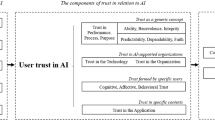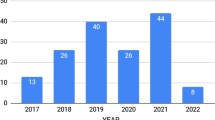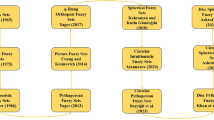Abstract
This paper aims to improve trust models in multi-agent systems based on four vital components, namely: reliability, similarity, satisfaction and trust transitivity. A number of different methods of computing these components were analyzed by considering the most representative existing trust models. The four trust components were identified from existing models then a trust model named trust transitivity–satisfaction–similarity–reliability (TtSSR) was proposed based on these components. TtSSR applied fuzzy logic for computing the identified components. Then by integrating the identified components and using Technique for Order of Preference by Similarity to Ideal Solution as a decision-making method, TtSSR selects the most trustworthy provider agent. The performance of TtSSR was compared with existing trust models using a simulator, specifically with Bayesian Network Model, Probability Certainty Distribution Model, and Dynamic Trust Model which are based on probability and TREPPS which is based on fuzzy logic. The experimental results revealed that TtSSR can significantly improve the accuracy of trust models; while the result of simulations demonstrated that the average accuracy of TtSSR in selecting a trustworthy agent is better than other models. Generally, the results indicated that when these four components were integrated, they performed significantly better in selecting a trustworthy agent as compared to other models.





Similar content being viewed by others
References
Aberer, K., & Despotovic, Z. (2001). Managing trust in a peer-2-peer information system. Paper presented at the Proceedings of the tenth international conference on Information and knowledge management
Albakri, S. H., Shanmugam, B., Samy, G. N., Idris, N. B., & Ahmed, A. (2014). Security risk assessment framework for cloud computing environments. Security and Communication Networks
Alcalde, B., & Mauw, S. (2010). An algebra for trust dilution and trust fusion Formal Aspects in Security and Trust (Vol. 5983, pp. 4–20). Berlin Heidelberg: Springer, Berlin Heidelberg
Arenas AE, Aziz B, Silaghi GC (2010) Reputation management in collaborative computing systems. Security and Communication Networks 3(5):546–564
Artz D, Gil Y (2007) A survey of trust in computer science and the semantic web. Web Semantics: Science, Services and Agents on the World Wide Web 5(2):58–71
Battiston, S., Walter, F. E., & Schweitzer, F. (2006). Impact of trust on the performance of a recommendation system in a social network. Paper presented at the Proceedings of the Workshop on Trust in Agent Societies at the Fifth International Joint Conference on Autonomous Agents and Multi-Agent Systems (AAMAS’06), United Kingdom
Bhuiyan, T., Josang, A., & Xu, Y. (2009). An analysis of trust transitivity taking base rate into account. Paper presented at the Proceeding of the Sixth International Conference on Ubiquitous Intelligence and Computing, Brisbane, Australia
Bhuiyan, T., Xu, Y., & Josang, A. (2008). Integrating trust with public reputation in location-based social networks for recommendation making. Paper presented at the Web Intelligence and Intelligent Agent Technology, 2008. WI-IAT’08. IEEE/WIC/ACM International Conference on, Sydney, Australia
Bose A, Shin KG (2013) Agent-based modeling of malware dynamics in heterogeneous environments. Security and Communication Networks 6(11):1576–1589
Botêlho V, Enembreck F, Ávila B, De Azevedo H, Scalabrin E (2011) Using asymmetric keys in a certified trust model for multiagent systems. Expert Systems with Applications 38(2):1233–1240. doi:10.1016/j.bbr.2011.03.031
Boukerch A, Xu L, El-Khatib K (2007) Trust-based security for wireless ad hoc and sensor networks. Computer Communications 30(10):2413–2427
Buchegger, S., & Le Boudec, J.-Y. (2004). A Robust Reputation System for P2P and M bile Ad hc Netw rks P2P and Mobile Ad-hoc Networks
Bustos, F., López, J., Julián, V., & Rebollo, M. (2009). STRS: Social Network Based Recommender System for Tourism Enhanced with Trust. Paper presented at the International Symposium on Distributed Computing and Artificial Intelligence 2008 (DCAI 2008)
Castelfranchi, C., Falcone, R., & Pezzulo, G. (2003). Integrating trustfulness and decision using fuzzy cognitive maps Trust Management (pp. 195–210): Springer
Chen C-T (2000) Extensions of the TOPSIS for group decision-making under fuzzy environment. Fuzzy sets and systems 114(1):1–9
Corbo, J., & Parkes, D. (2005). The price of selfish behavior in bilateral network formation. Paper presented at the Proceedings of the twenty-fourth annual ACM symposium on Principles of distributed computing
Dellarocas, C. (2003). Efficiency and robustness of binary feedback mechanisms in trading environments with moral hazard
Dong, C., Russello, G., & Dulay, N. (2007). Trust transfer in distributed systems Trust Management (Vol. 238, pp. 17–29). United States: Springer, US
Elshaafi, H., & Botvich, D. (2014). Optimisation-based collaborative determination of component trustworthiness in service compositions. Security and Communication Networks
Falcone, R., & Castelfranchi, C. (2001). Social trust: A cognitive approach Trust and deception in virtual societies (pp. 55–90): Springer
Firdhous M, Ghazali O, Hassan S (2012) Trust Management in Cloud Computing: A Critical Review. International Journal on Advances in ICT for Emerging Regions (ICTer) 4(2):24–36
Fullam, K. K., Klos, T. B., Muller, G., Sabater, J., Schlosser, A., Topol, Z., Voss, M. (2005). A specification of the Agent Reputation and Trust (ART) testbed: experimentation and competition for trust in agent societies. Paper presented at the Proceedings of the fourth international joint conference on Autonomous agents and multiagent sysems (AAMAS ’05), The Netherlands
Gorner J, Zhang J, Cohen R (2013) Improving trust modeling through the limit of advisor network size and use of referrals. Electronic Commerce Research and Applications 12(2):112–123
Griffiths, N. (2005). Task delegation using experience-based multi-dimensional trust. Paper presented at the Proceedings of the fourth international joint conference on Autonomous agents and multiagent systems (AAMAS ’05), The Netherlands
Griol D, Carbó J, Molina JM (2013) An Automatic Dialog Simulation Technique to Develop and Evaluate Interactive Conversational Agents. Applied Artificial Intelligence 27(8):759–780. doi:10.1080/08839514.2013.835230
Huynha, T. D., Jennings, N., & Shadbolt, N. (2004). FIRE: An integrated trust and reputation model for open multi-agent systems. Paper presented at the 16th European Conference on Artificial Intelligence, Valencia, Spain
Jøsang, A. (1999). An Algebra for Assessing Trust in Certification Chains. Paper presented at the NDSS
Jøsang A (2001) A logic for uncertain probabilities. International Journal of Uncertainty, Fuzziness and Knowledge-Based Systems 9(03):279–311
Jøsang, A., Bhuiyan, T., Xu, Y., & Cox, C. (2008). Combining trust and reputation management for web-based services Trust, Privacy and Security in Digital Business (Vol. 5185, pp. 90–99). Berlin Heidelberg: Springer, Berlin Heidelberg
Jøsang A, Ismail R, Boyd C (2007) A survey of trust and reputation systems for online service provision. Decision support systems 43(2):618–644
Jsang, A., & Ismail, R. (2002). The beta reputation system. Paper presented at the Proceedings of the 15th bled electronic commerce conference
Jung Y, Kim M, Masoumzadeh A, Joshi JBD (2012) A survey of security issue in multi-agent systems. Artificial Intelligence Review 37(3):1–22
Kaljahi A, Payandeh A, Ghoshchi M (2013) DTM: An Efficient and Dynamic Trust and Reputation Model for E-commerce Agents. Journal of Basic and Applied Scientific Research 3(7):300–310
Khalid O, Khan SU, Madani SA, Hayat K, Khan MI, Min-Allah N, Chen D (2013) Comparative study of trust and reputation systems for wireless sensor networks. Security and Communication Networks 6(5):669–688
Li, L., Li, H., Lu, G., & Yao, S. W. (2007). A Quantifiable Trust Model for Multi-agent System Based on Equal Relations. Paper presented at the Computational Intelligence and Security, 2007 International Conference on, China
Li YM, Kao CP (2009) TREPPS: A trust-based recommender system for peer production services. Expert systems with applications 36(2):3263–3277
Ma J, He X (2008) A fast fixed-point BYY harmony learning algorithm on Gaussian mixture with automated model selection. Pattern Recognition Letters 29(5):701–711
Ma J, Liu J (2007) The BYY annealing learning algorithm for Gaussian mixture with automated model selection. Pattern Recognition 40(6):2029–2037
Marcozzi A, Hales D (2008) Emergent social rationality in a peer-to-peer system. Advances in Complex Systems 11(04):581–595
Moscibroda, T., Schmid, S., & Wattenhofer, R. (2006). On the topologies formed by selfish peers. Paper presented at the Proceedings of the twenty-fifth annual ACM symposium on Principles of distributed computing
Mun J, Shin M, Lee K, Jung M (2009) Manufacturing enterprise collaboration based on a goal-oriented fuzzy trust evaluation model in a virtual enterprise. Computers & Industrial Engineering 56(3):888–901
Munoz A, Mana A (2011) TPM-based protection for mobile agents. Security and Communication Networks 4(1):45–60
Olmedilla, D., Rana, O. F., Matthews, B., & Nejdl, W. (2005). Security and trust issues in semantic grids. Semantic Grid, 5271
Ping, W., & Jing, Q. (2007). A Mathematical Trust Model in E-Commerce. Paper presented at the Multimedia and Ubiquitous Engineering, 2007. MUE’07. International Conference on, Seoul, Korea
Ren Y, Li M, Sakurai K (2011) FineTrust: a fine-grained trust model for peer-to-peer networks. Security and Communication Networks 4(1):61–69
Rosaci D, Sarné GML, Garruzzo S (2012) Integrating trust measures in multiagent systems. International Journal of Intelligent Systems 27(1):1–15
Sabater, J., & Sierra, C. (2001). REGRET: reputation in gregarious societies. Paper presented at the Proceedings of the fifth international conference on Autonomous agents, Montreal, Quebec, Canada. http://doi.acm.org/10.1145/375735.376110
Sabater J, Sierra C (2005) Review on computational trust and reputation models. Artificial Intelligence Review 24(1):33–60
Schiller, N. G., Basch, L., & Blanc-Szanton, C. (1992). Towards a definition of transnationalism. Annals of the New York Academy of Sciences, 645(1), ix-xiv
Schmidt S, Steele R, Dillon TS, Chang E (2007) Fuzzy trust evaluation and credibility development in multi-agent systems. Applied Soft Computing 7(2):492–505
Song S, Hwang K, Zhou R, Kwok Y-K (2005) Trusted P2P transactions with fuzzy reputation aggregation. Internet Computing, IEEE 9(5):24–34
Sundresh TS (2006) Semantic reliability of multi-agent intelligent systems. Bell Labs Technical Journal 11(3):225–236
Tajeddine, A., Kayssi, A., Chehab, A., & Artail, H. (2006). PATROL-F-a comprehensive reputation-based trust model with fuzzy subsystems: Springer
Walter F, Battiston S, Schweitzer F (2008a) Coping with information overload through trust-based networks. In: Helbing D (ed) Managing Complexity: Insights, Concepts, Applications. Springer, Berlin Heidelberg, Berlin Heidelberg, pp 273–300
Walter FE, Battiston S, Schweitzer F (2008b) A model of a trust-based recommendation system on a social network. Autonomous Agents and Multi-Agent Systems 16(1):57–74
Wang, Y., Cahill, V., Gray, E., Harris, C., & Liao, L. (2006). Bayesian network based trust management Autonomic and Trusted Computing (pp. 246–257): Springer
Wang Y, Nakao A (2010) On cooperative and efficient overlay network evolution based on a group selection pattern. Systems, Man, and Cybernetics, Part B: Cybernetics, IEEE Transactions on 40(2):493–504
Wang, Y., & Singh, M. P. (2006). Trust representation and aggregation in a distributed agent system. Paper presented at the AAAI
Wang, Y., & Singh, M. P. (2007). Formal Trust Model for Multiagent Systems. Paper presented at the IJCAI
Wang, Y., & Vassileva, J. (2003a). Bayesian network-based trust model. Paper presented at the Web Intelligence, 2003. WI 2003. Proceedings. IEEE/WIC International Conference on, Halifax, Canada
Wang, Y., & Vassileva, J. (2003b). Trust and reputation model in peer-to-peer networks. Paper presented at the Peer-to-Peer Computing, 2003. (P2P 2003). Proceedings. Third International Conference on, Linköping, Sweden
Woo, J. W., Hwang, M. J., Lee, C. G., & Youn, H. Y. (2010). Dynamic role-based access control with trust-satisfaction and reputation for multi-agent system. Paper presented at the Advanced Information Networking and Applications Workshops (WAINA), 2010 IEEE 24th International Conference on, Perth, Australia
Woolliams, E. R. (2013). Determining the uncertainty associated with integrals of spectral quantities. EURAMET-Metrology for Solid State Lighting
Yoon, J.-W., Oh, K.-K., Nam, C.-S., & Shin, D.-R. (2010). Agent-based sensor network middleware using reputation mechanism over heterogeneous network environments. Paper presented at the Computer and Automation Engineering (ICCAE), 2010 The 2nd International Conference on
Yu T, Winslett M, Seamons K (2002) Automated trust negotiation over the internet. Proc. of Multiconference on Systemics, Cybernetics and Informatics
Yuan, J., & Li, L. Recommendation Based on Trust Diffusion Model
Yuan S-T, Sung H (2004) A learning-enabled integrative trust model for e-markets. Applied Artificial Intelligence 18(1):69–95
Zacharia G, Maes P (2000) Trust management through reputation mechanisms. Applied Artificial Intelligence 14(8):881–907
Zacharia G, Moukas A, Maes P (2000) Collaborative reputation mechanisms for electronic marketplaces. Decision support systems 29(4):371–388
Zhang, B., Huang, Z., Yu, J., & Xiang, Y. (2014). Trust computation for multiple routes recommendation in social network sites. Security and Communication Networks
Zhang J, Cohen R (2008) Evaluating the trustworthiness of advice about seller agents in e-marketplaces: A personalized approach. Electron Commer. Res. Appl. 7(3):330–340
Zhang Y, Fang Y (2007) A fine-grained reputation system for reliable service selection in peer-to-peer networks. Parallel and Distributed Systems, IEEE Transactions on 18(7):1134–1145
Zhou, L. (2009). Organizational Knowledge Management Based on Social Network. Paper presented at the Information and Computing Science, 2009. ICIC’09. Second International Conference on, Beijing, China
Zhou X, Xu Y, Li Y, Josang A, Cox C (2012) The state-of-the-art in personalized recommender systems for social networking. Artificial Intelligence Review 37(2):119–132
Acknowledgments
The authors wish to extend their gratitude to the Ministry of Science, Technology and Innovation (Science Fund: SF007-2015) for help supporting this study.
Author information
Authors and Affiliations
Corresponding author
Ethics declarations
Conflict of interest
The authors, Dr Elham Majd and Dr Vimala Balakrishnan, have declared no conflict of interest for paper entitled “A trust model for recommender agent systems”.
Additional information
Communicated by V. Loia.
Rights and permissions
About this article
Cite this article
Majd, E., Balakrishnan, V. A trust model for recommender agent systems. Soft Comput 21, 417–433 (2017). https://doi.org/10.1007/s00500-016-2036-y
Published:
Issue Date:
DOI: https://doi.org/10.1007/s00500-016-2036-y




